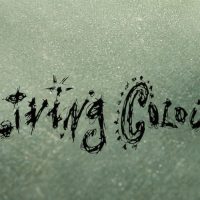Listening to Collideoscope, at that point the first album of new material from Living Colour in 10 years, it was a little surprising how much time had lapsed between this offering and Stain. Living Colour broke up in one of those moves that left fans hanging — more “huh?” comments were heard than “it’s about time.” So it didn’t come as much of a surprise in 2000 when I heard that the band was back together to do some live shows. Three years later, we were offered Collideoscope, the result of banging out ideas live.
The album opens with “Song Without Sin,” a track that easily could have been on Stain, which features a middle-eastern motif and lyrics that appear to be pointed straight at the on-going war in that region. “A ? Of When” begins with the kind of collage found prominently on Time’s Up and addresses the paranoia and confusion of the post-Sept. 11 world. The Iraq war and the terrorist attacks play a big part in the subject matter of Collideoscope, in fact.
The first five tracks address one subject or the other, and the general tone of the album is that of paranoia. It’s one big, angry mass, with an almost claustrophobic production that may seem distracting at first but proves to be a really fascinating listen on headphones. Each song carves out its own unique space, and it may seem a little confusing at first. Repeated listens reveal that the placement of instruments and effects is purposely different for each song.
For instance, “Operation Mind Control,” a tune whose lyrics present the thoughts of a paranoid conspiracy-theorist, is deep and heavy, nearly oppressively monotone, and “Flying,” which follows it, has a bright, intimate vibrance that makes it sound as if the band is the room with you.
“Flying” is, no doubt, the emotional center of the album. Following three tracks of anger and paranoia, the song presents what seems at first to be an odd, but beautiful ballad. As the song plays on it becomes obvious that the subject matter is darker than expected. The theme of “flying” is presented in several ways: The first reaction is that it’s a humorous anecdote about being in love, the second is that it’s about suicide by falling from a great height, and the third (the real meaning of the song) is the last moments of people in the World Trade Center buildings, Sept. 11, 2001. An intriguing parallel is drawn with the chorus — “such a lovely day to go flying” is chilling way to describe the morning of the events for the passengers on the hijacked airplanes and for the unfortunate victims in the buildings who would eventually choose to jump to their deaths.
“I was gathering up my nerve to ask out Carmen
She glanced out the window
Oh my God
The room, it went away
Now we’re holding hands
Just not the way I planned”
Everytime I hear this I cannot help but be gripped by the images of people plunging to their deaths, holding hands all the way.
It’s a simple song — a most straight-forward, almost predictable ballad, and that’s exactly why it’s so emotionally powerful. I almost wish, however, that the song were placed further into the album. Being as powerful as it is, the rest of the album rings a little hollow and it’s not necessarily because the songs are particularly lacking. Placing “Flying” at number 4 in the track list kills the momentum and the album essentially has to start over building that energy back up.
“In Your Name,” which follows it, doesn’t prove to be a strong enough re-start and is filled with almost comically distracting “laser” noises in an attempt to illustrate the song’s anti-war sentiments. I’m not sure what they were attempting on the song, but it doesn’t work for me. A surprisingly straight-forward cover of AC/DC’s “Back In Black” follows as an almost too-obvious joke, but the momentum starts again with the reggae-infused “Nightmare City.”
The rest of the album flows in like the Living Colour we knew in the 90s — metal infused with intelligent funk nods here and there. “Lost Halo” and “Holy Roller” seem almost like filler followed by “Great Expectations,” one of the strongest tracks on this latter half of the album. Weighing slightly more toward funk than rock, the song presents an addictive battle of balance between guitarist Reid and bassist Wimbish — which has always been one of the earmarks of Living Colour in the first place.
“Choices Mash Up” is another of those odd experimental tracks that surfaced on Time’s Up and flirts with electronics to poke fun at corporate mentalities. “Pocket Of Tears” is another mid-tempo ballad, not unremarkable, but it can’t measure up to the emotional impact offered by “Flying.” Living Colour oddly chose to resurrect one of the new tracks offered on its 1995 best-of, Pride.
“Sacred Ground” has been remade, but unfortunately can’t live up to the frantic energy of the original. It does, however, serve as the real end of the album for me. Unfortunately, it didn’t for the band: They included their own take on the much-covered Beatles song “Tomorrow Never Knows” which flows into a coda of sorts by the name “Nova.” The cover seems unnecessary, and where I expected they’d take advantage of the original’s eclecticism to craft something really unusual, they instead chose to play the song more straight than the original — as a ballad, in effect. It’s inclusion is questionable and, sadly, unnecessary.
[SOMETHING ELSE! INTERVIEW: Vernon Reid discusses the incendiary fusion collaboration Spectrum Road, how jazz has informed his playing from the start – and bursting onto the scene with Living Colour.]
Collideoscope wasn’t really an easy album to get into. It was a “grower.” My first reactions to it were subdued: I really wanted something shocking and new from them and this really wasn’t. There wasn’t much surprising on the album. Even 10 years later, the band’s sound was distinct. They’d stayed very true to the sound they had been developing at the time of their breakup, even logically following the path hinted at by the four new tracks Pride presented.
It’s an unusual problem: Most of the time, a band gets back together and fans complain that the resulting album doesn’t really sound much like their older material. This time, they almost sounded too much like it. Somewhere in between is the perfect mix, but that’s a rare thing to find. Still, if you give this album enough time to sink in, it’s worth it.
- King Crimson’s Brief But Important Double-Trio Era Peaked With ‘Thrak’ - April 14, 2025
- How David Bowie’s ‘Reality’ Stood Out For What It Was Not - September 29, 2023
- Metallica’s ‘St. Anger’ Was Always Much Better Than They Said - June 8, 2023




